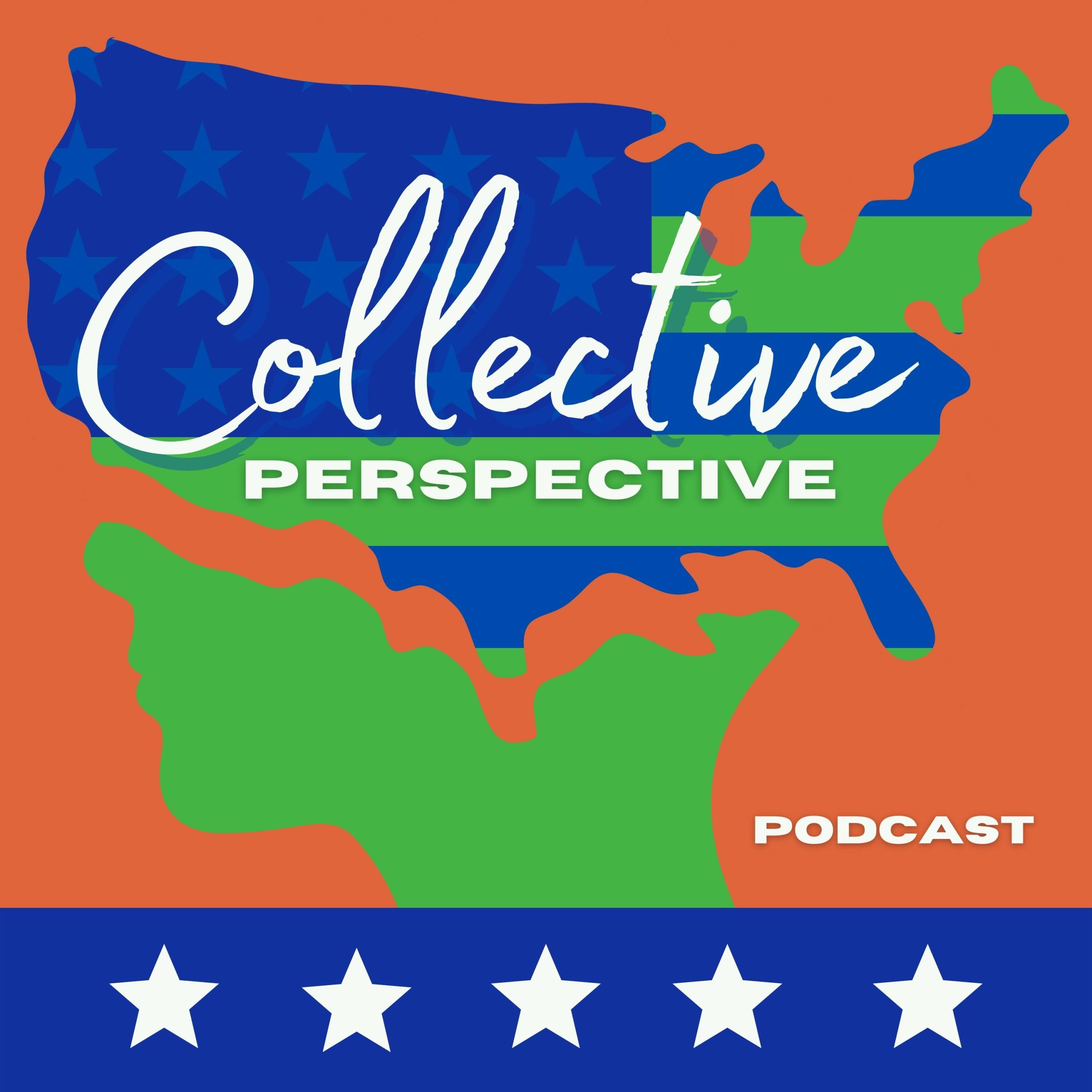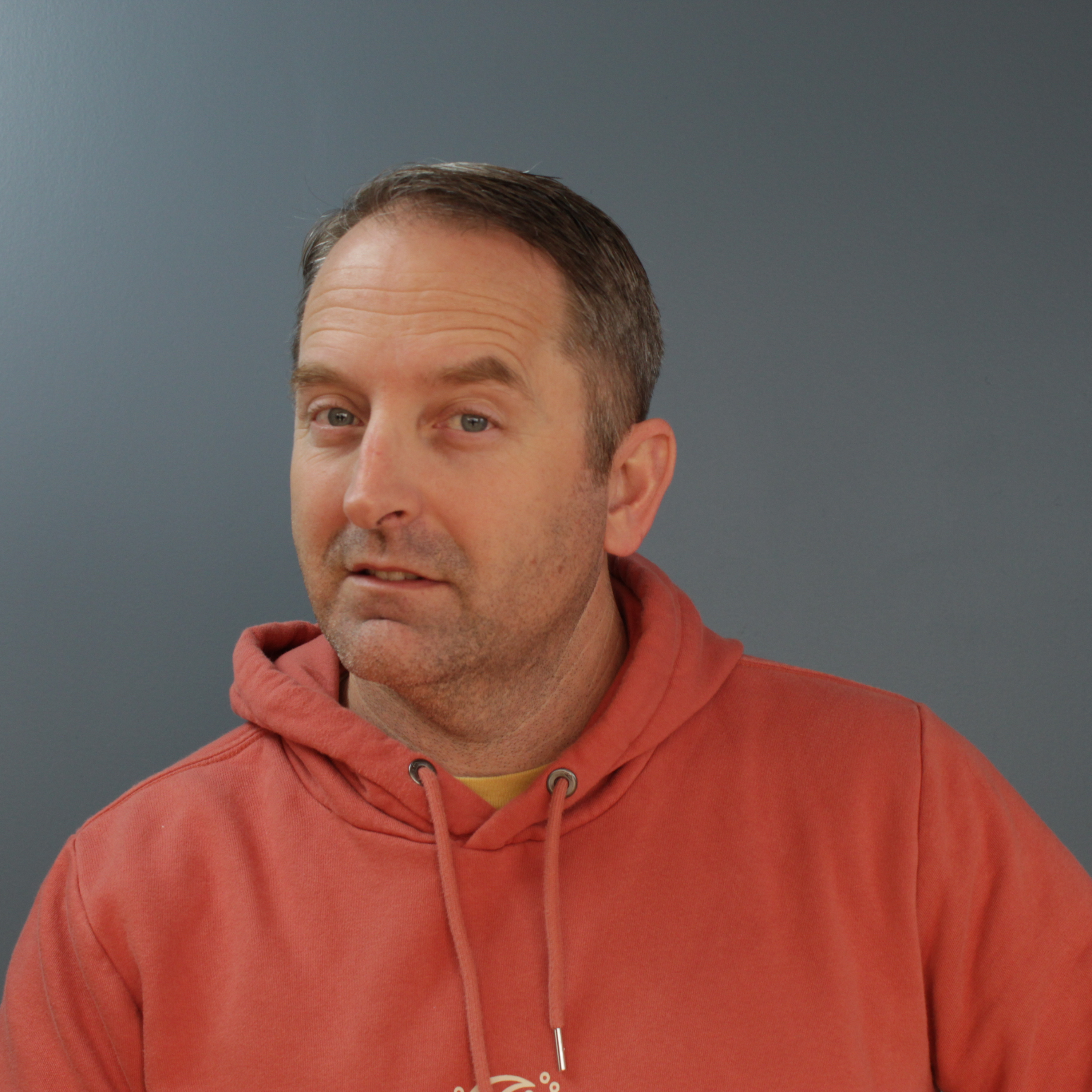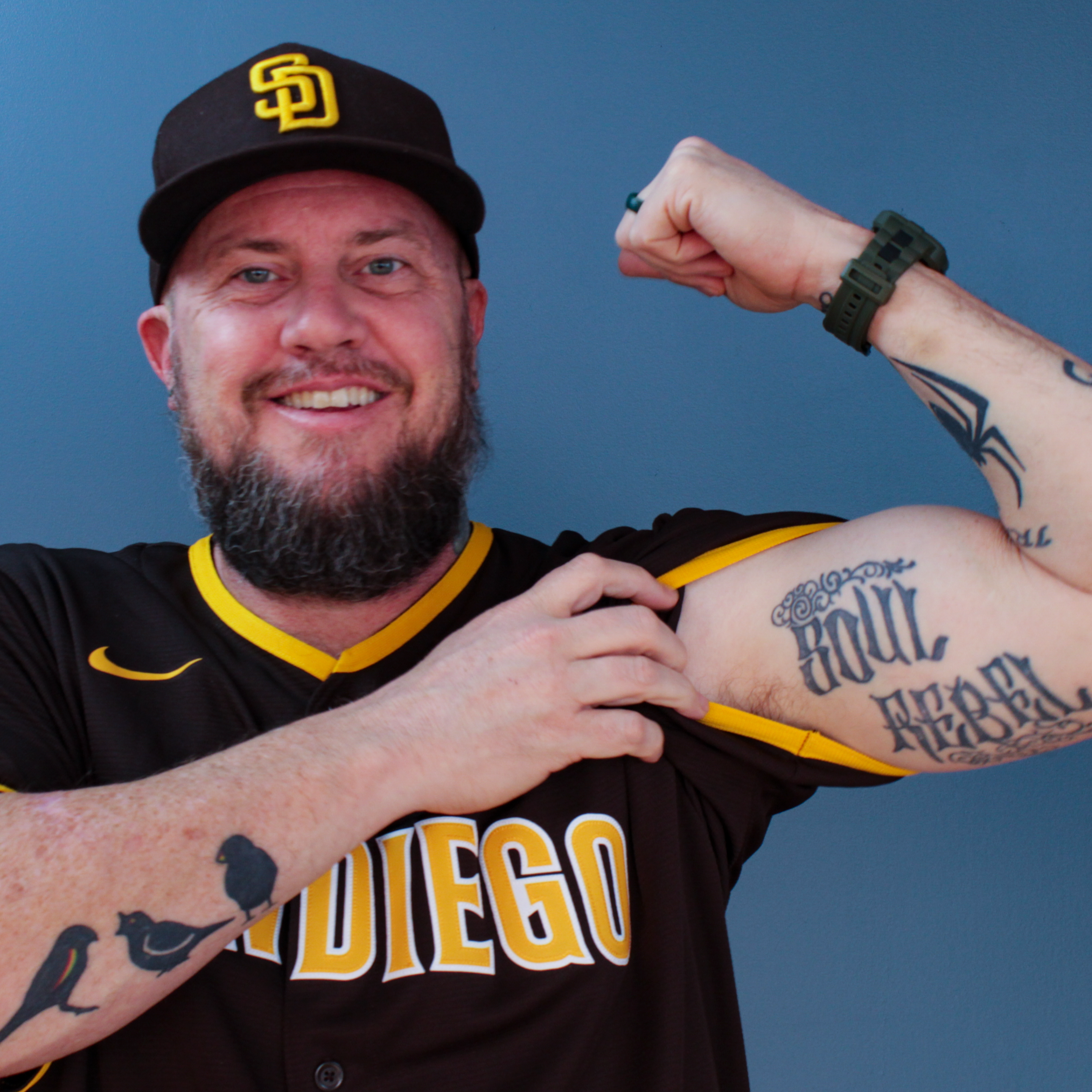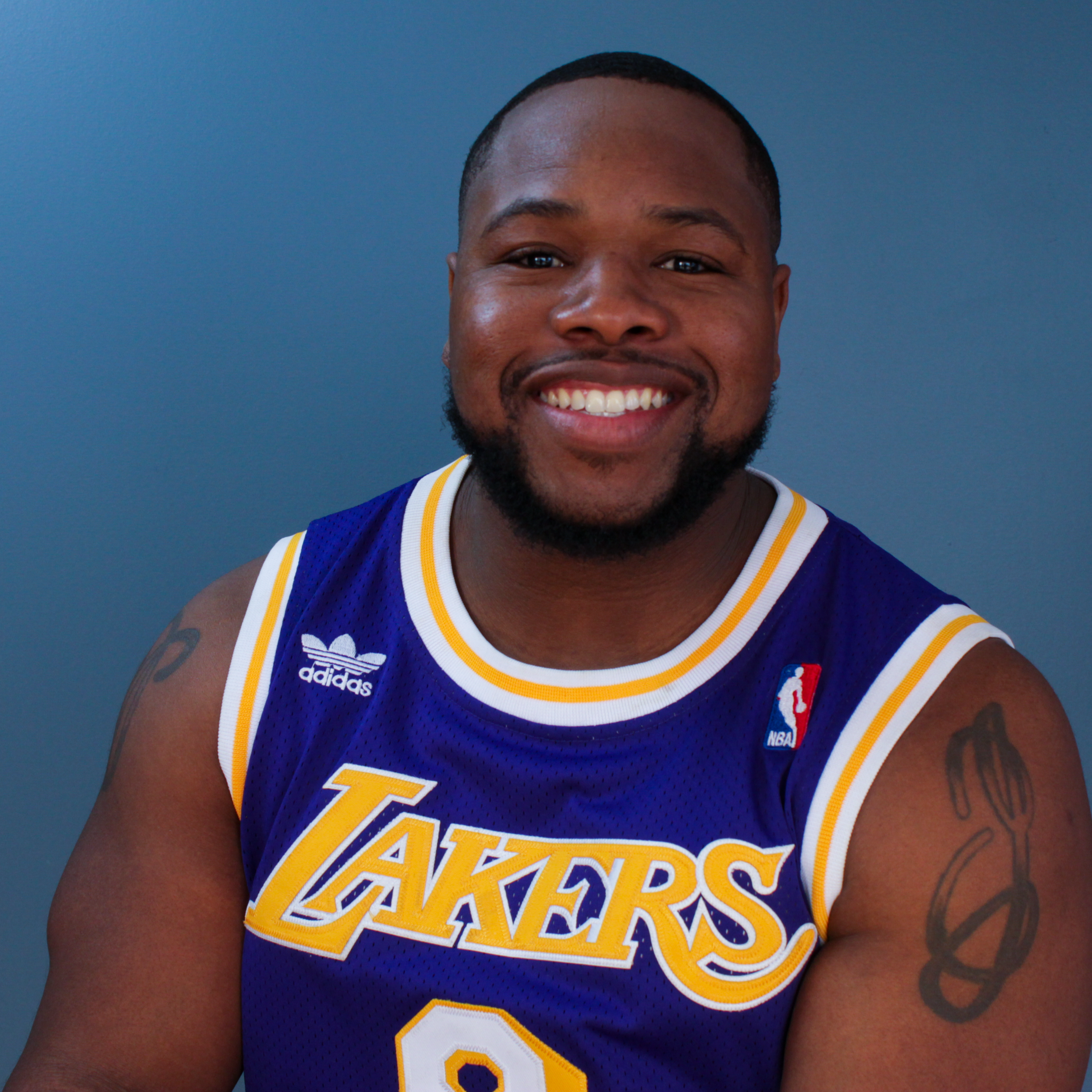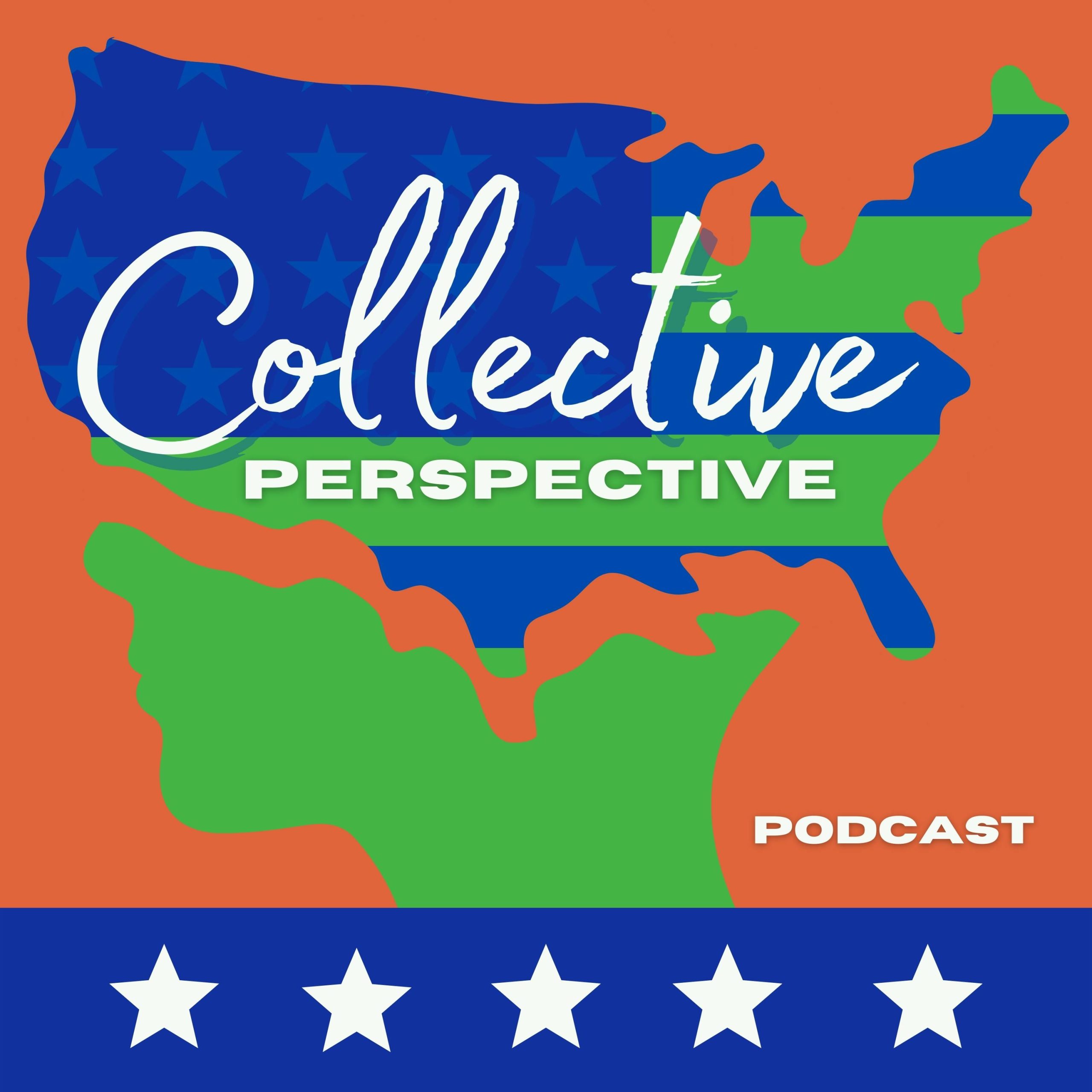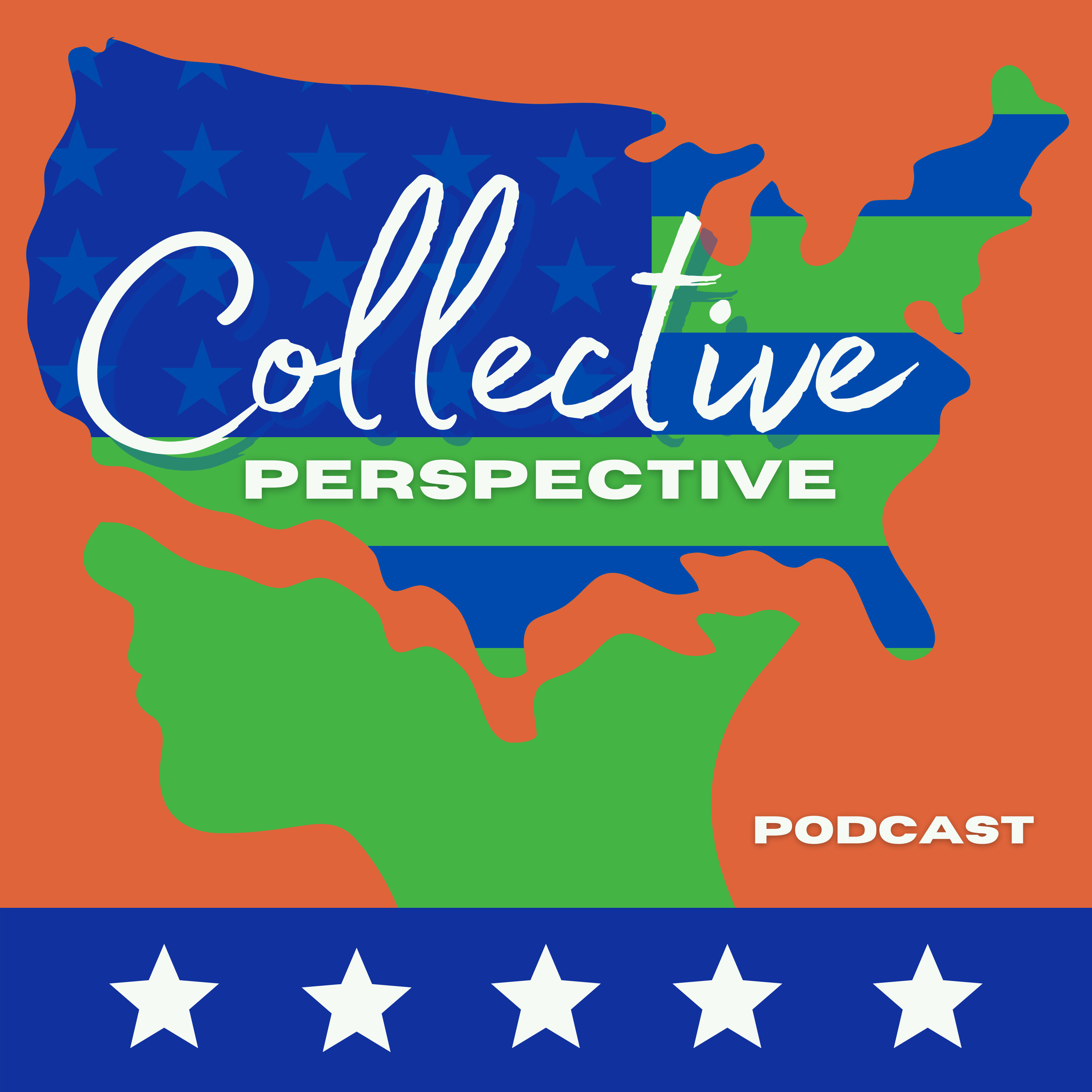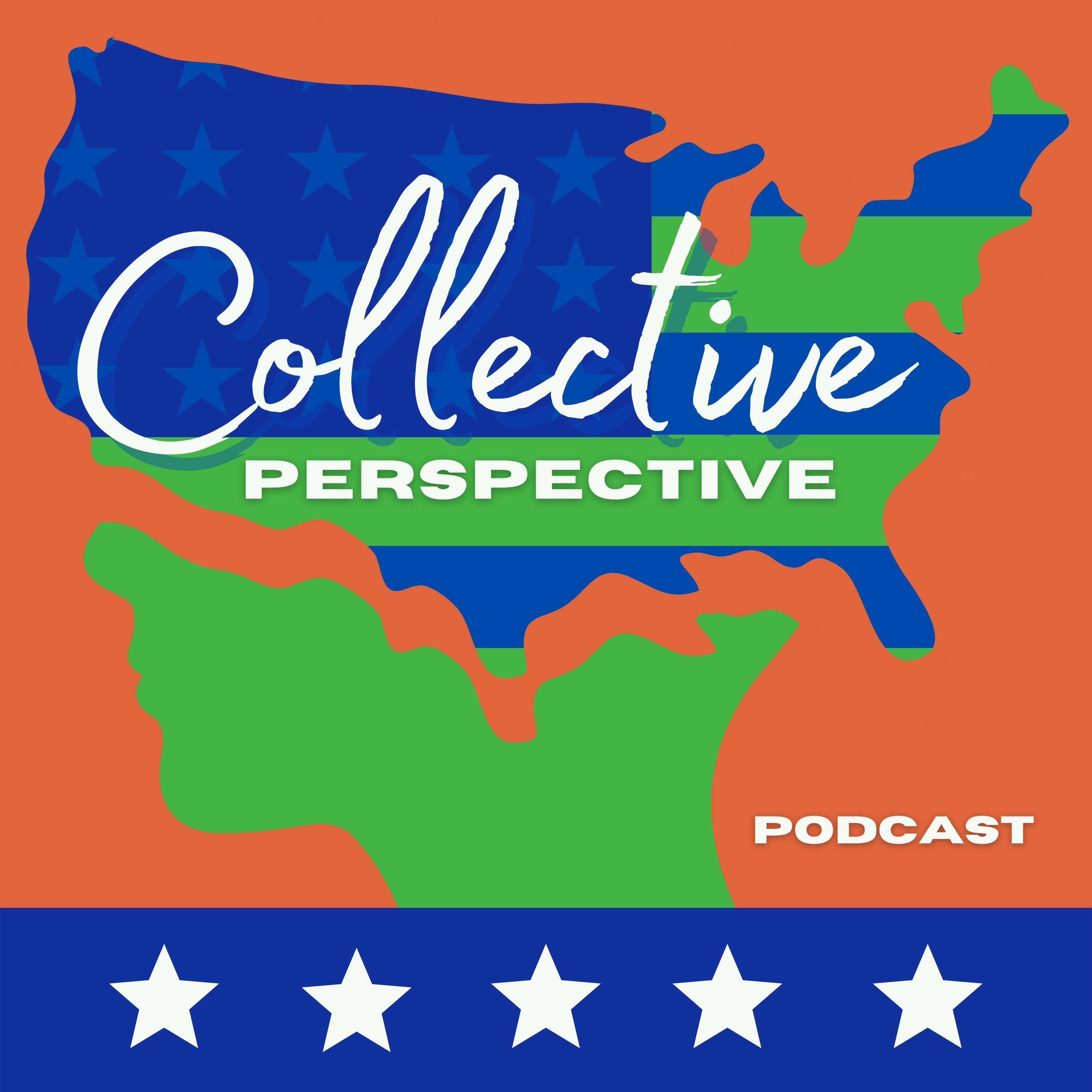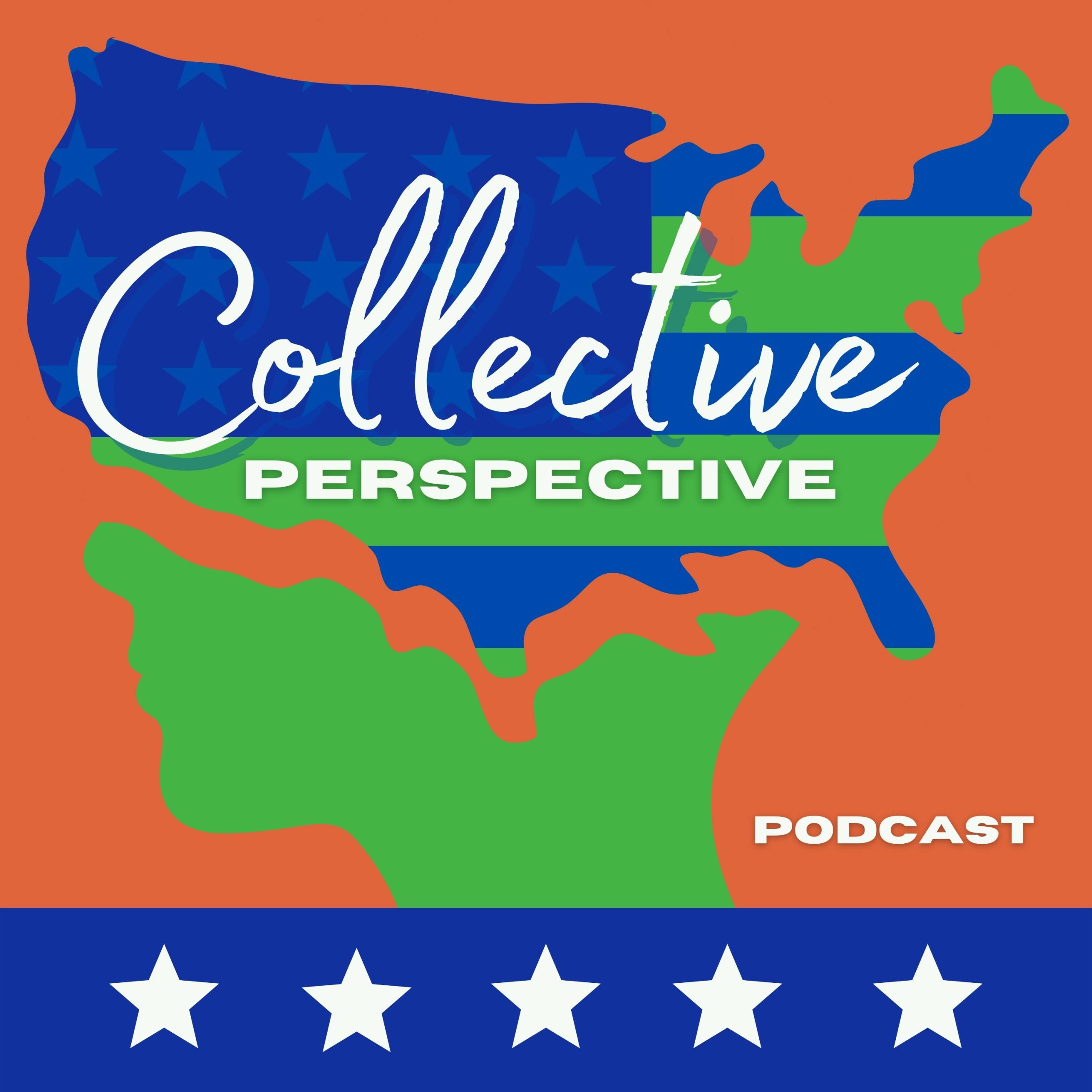Many of us take for granted the freedom of speech that was handed down to us by the Founding Fathers, but do we really understand what it means? The foundation of the United States' constitutional framework and Bill of Rights established certain freedoms for our citizens. Listen closely, as this episode dives into how freedom of speech is evolving. Explore today's media landscape and we are slowly being silenced and if “Cancel Culture” is infringing on our rights. You decide. A special thank you to Aaron and Steve for sharing their perspectives on this episode.
View Full Transcript
Episode Transcript
The Collective Perspective podcast is set on a mission to understand some of the most impactful and controversial trends and topics in our lives today. Hi, I'm Jeff. Hi, I'm Travis. Can we find common ground in the middle in a peaceful manner, but with real community benefit? We believe as veterans and concerned citizens, that we're striving to bring together diverse views with fact-based research to navigate this tough terrain in search of a viable path forward.
How do we unify as American citizens and prove we aren't all that much different? So meet us in the middle, not the right or left. In season two, we have decided to focus on research and exposing fake news and fake information, and we're tired of the media lying to us. We're tired of fake news and we're tired of the government lying to us.
We want to know the truth, and our mission is to seek the truth. Everybody, this is the Collective Perspective podcast, and we're here in sunny Jacksonville, Florida talking to you from the new collective perspective studios. Hey everybody, this is Jeff from the Collective perspective, and this is Travis also of the collective perspective.
Here we are, episode one, season two, and today's topic. Before we get into it, we'll have a couple things to discuss, but today's topic is freedom of Speech. That's a pretty big topic there, Jeff. Yes, it is. It's more than I thought I could tackle, but I've learned a lot from it. I think I've learned quite a bit too.
We hope our listeners learn a lot from it too. That brings up how do we find our information? Some people find their information just by looking on one source. Maybe it's social media, maybe it's their thread that are all collectively their friends that they haven't blocked or unfriended or unfollowed on Facebook or whatever social media outlet you're on, and you're really only hearing one side or Twitter.
Yeah. Any others? The whole purpose of the Constitution, or at least the Bill of Rights, is. I would say the Constitution is diversity, and that's how our country was framed to work. Our forefathers framed the Constitution and the Bill of Rights through diverse thought. They weren't all the same type of people.
Founding fathers did have a bunch of different views. They were a diverse group of people. They may have all looked the same, if I'm not mistaken, which I could be. I think they were all white, aristocratic type of people. I. And they all wore a gray wig. Did they? I don't know. In my head. I don't know. In my, for, in my version of my forefathers, they wore wigs.
Too many movies. Man. That is somewhat of a movie reference. Yes. But I, I, I think, yes. Uh, again, I'm, I'm, I'm agreeing with you that they were very diverse because I, I, I feel, I don't have anything to back this up. I don't know. Many did own slaves at the same time they were against the idea of slavery, if that makes sense.
And. Definitely tyranny. Yes, definitely against tyranny, but slavery, and that's why we have the three-fifths rule or the three-fifths compromise. In the original constitution, that was actually hard fought when to count slaves as three-fifths of a person. Because if you think about it, even back then, women weren't counted as people.
They didn't get that count. They didn't get that vote. The more slaves they had, the more vote that they could command, or what is it? Uh, what is it I'm looking for? Um, not vote. It, it, maybe it would be vote because that's how, you know, they still would pass laws and pass regulations and such, but they needed a certain amount of people to do it.
And to count a slave as a whole person would give that slave owner a lot more power than somebody who only had a few slaves. Does that make sense? That three fifths kinda helped equalize it a little between someone who owned a ton of land and had hundreds, or even thou, I don't know if they had thousands of slaves.
I, I'm sure some big plantations had hundreds at least. But like I said, I have nothing to back that up. I don't know if that's how many, uh, one slave owner in America had back then a backup plan for the people's best interest. So back to how we find information. Travis and I bounce news and information off of each other on a daily basis.
Some of it's funny, most of it's not. What I do is I find an interesting video. I'm a visual learner. I like to watch videos, get the dialogue from those videos, pause research on that specific information that I've just taken in, maybe it be a person and see what multiple sources on the internet say about this said person.
What I'll do a lot is watch the video, pause, read about this said person or whatever, and then send a link to Travis and then I'll find something else in the video and I'll stop and I'll do the research. What I'm basically doing, I feel, is using diverse options for information, so it's not just one source.
Tells me something and I believe it, I actually go and I do a little bit. I go a little bit further and get the information that I'm looking for to base a perception or an opinion on said topic. So I was gonna ask, how do you know if that person is credible? Uh, what are you looking for when you're researching who that person is?
Well, a lot of it is educational websites. Usually they're some type of a historic figure. At least in this last example, how could we know if they're a credible source or a reliable source? Is does it go on their interactions with the, the audience that they have? It's hard to, it's hard to say how, how you judge someone as a credible source.
Like many people I would, I would imagine they look at multiple different sources. I'm just giving you one frame of like how I do research for the podcast is I'll find a topic and then I'll research individual items within that topic. Let's say it's a public figure and he created public relations and public relations.
Started doing this. They're mentioning him in the video, but the video is like very short summary of what the guy did. But here I can go in and see what they did on a historical point, learn more about like who that person was. So he's more of a primary source and that's a, that's a good thing that those are great sources to have someone who's an expert or is a, a significant figure in the field that you're looking at.
So yes, primary sources would be a great source of new information or learning about a, a topic. I believe primary sources are lived experiences firsthand. Yes, lived, uh, a lived experience. I could write a biography of, of my life, if you will. And that would be considered a primary source because it's my lived experience, it's what I perceive things.
The secondary source is an interpretation. I, I feel, an interpretation of primary sources or information on certain subjects. I guess what I'm asking is when you get new information about today's events, how do you judge that person that's reporting that information as credible? We usually have taken, let's say for example, the information that you give me, the first thing I wonder is, Who the heck is this person saying this?
That's, that's very valid. Who is this person? If I look up that name somewhere else? Usually it's tied to some type of, I don't wanna say conspiracy because not everybody's a conspiracy, but conspiracy theory is a term that wasn't really used up until about the sixties. It placed a negative context towards the people at that time who've had a different view of what the narrative was.
I would say most of them on Twitter, in my opinion. Our conspiracy theorists, I could be wrong, but it kind of diminishes their credibility a little bit because, so for example, they'll say something and then I'll go look up and search that same topic that they're talking about, see if anybody else is talking about it.
Fact check. We've already fact checked. Yeah. These people have already, you know, somebody might have already fact checked this person. I'll read what they have to say and what their credibility is pointed out that without you even thinking about it, conspiracy theory means it's something that's bogus by some whack job.
That's how they've used that term. But now that's how they're name calling the other side right now, conspiracy theorist, uh, they're just a conspiracy theorist. So now anything you say won't be taken seriously from that point on. Well, they had to change it from Hitler. What was it then? Anybody that opposed what you were doing during the pandemic?
It was, you were basically just as bad as Hitler. Oh, everybody was straight to Hitler. Oh, if you're on the other side, you're Hitler, right? Yeah, there was. It was almost like there was no in between there. You know, it's kind of funny though, because I'll be less likely to listen to what that person is saying and more likely to listen to someone on the news.
No, wait, hold on a minute. I don't even watch the news because I think the news is just a bunch of, I call it the crime report. Every day you gotta sit down and listen to a crime report and it's depressing. And this happened and that happened. And during the pandemic was a good example because I told my wife like, look, we're gonna watch one hour of this newscast and then we're gonna watch one hour of this newscast once a week.
I. We're not going to play into all this political stuff and stress us out. I feel that some people just have motives and I question what their motive is. And I would say that a lot of people online just want attention and in order to stay at the top of the list or the, the top of the algorithm, they have to continually post things.
So that makes them, sometimes I feel fabricate things just to get to that point. We're an attention whore. That would be another term for Travis. Yes. Sorry. We are a grownup podcast here. How do you find your news, Travis? With regards to looking at both sides of the so story? You have to seek out both sides and the truth will be somewhere in the middle if you're able to cut through the, if you're able to cut through the BS and the opinions that they throw in to their reporting.
I think you'll find a better truth or be more close to the truth. To be honest, the pandemic was probably one of the best things that happened to me financially, but when it came to my country, I kind of felt it, uh, I kind of felt like it started to fall apart and people just started to argue. Absolutely.
Which is actually what sprouted this entire podcast. Absolutely. Yeah. I, I agree. I, I, I think that it also, Actually, no. I think for me it was almost the opposite as far as as my personal life. But I do agree with how you assess the pandemic affected our, our community, our country. The community was greatly affected.
Absolutely. How do you find your news, Travis? I look up a couple of different sources and they, and I know based on other polls that some of the new sources I look at are on the right side. Um, I. Right-leaning and sometimes I'll go out like you do for your that time when you were watching one hour of newscast and a different one on a different day, or maybe same day.
I'm not sure. I would also deliberately look at left-leaning news and see how they're reporting the same topic. That's how I did things during the pandemic, and I would also look up. The legit scientific studies. 'cause I wanted to know what was going on with them and what I needed to take from it, you know, for my safety during that time.
'cause I was a healthcare worker. Another important thing too is like a lot of people put their opinion or their perspective on the internet and they're not open for healthy debate. That happens a lot when one side or the other doesn't matter, which 'cause. It can be either side when they don't have a strong argument or, uh, support for their position.
They resort to name calling. I. And I also think that during that time, what you just said really ties into what we're talking about now, that when people were giving their opinions, their unsolicited opinion on whatever social media, they were giving big tech and reams of data on their preferences. The only way that we are going to get past all of this division in the United States that we're facing is to talk.
To talk to each other. That's all it's gonna take. And we're gonna show you. So what Travis and I have been doing is asking some friends, they think of certain topics, and the first topic that we would like to talk about is freedom of speech and the importance of freedom of speech. Speech is probably the most universal of all of the amendments in the Bill of Rights and.
It basically means that the words that come outta your mouth are yours and they belong to you. And that's an interesting concept because when you consider that the framers of the Constitution during the Revolutionary War era, I. Uh, you know, the, the Crown felt like they owned everything, including the words that came outta your mouth and saying certain things would be a crime against the crown and could get you killed or jailed.
And so the freedom of speech was essentially a way for the framers to safeguard America from falling into the same sort of tyranny that they were under. The colonies were under during the Revolutionary War. I agree with that. They were just recently fought a war to break away from 'em. They understood that speech carries a lot of weight and can sway people, so that's why that's so high up in the Bill of Rights is being able to, Get your point across, your view across and see if others see it the same way as you do.
If not, somebody has to change or make a new opinion or consolidate their, thoughts a little more cohesively and take in the new information to have a better understanding of what they're saying and how. To get their point across. I think they were very concerned about the government silencing people that citizens have to have the right to express themselves, hence the Bill of Rights.
So I think you know what this is, this is a good point to talk about possibly. The Constitution was not a written for our laws. That was written as a, this is the founding of our country. We're breaking from England. This is who we are, this is what we're doing. The Bill of Rights had to be ratified by all the, by the states.
By two thirds or three quarters of the states, three fourths of the states actually ratified. Then the Bill of Rights, again, those were the rights. The amendments added to the Constitution delineating the limits of the federal government. So we established what the Constitution is and then the Bill of Rights.
Why it took two years for the Bill of Rights to be, to be added to the Constitution. That was the, that was the formation of the new government and the, the limits of the government right there. Congress shall make no law respecting. An establishment of religion or prohibiting the free exercise, therefore, or abridging freedom of speech or the press or the right to people peacefully to assemble and to petition the government for a redress of grievances.
In a nutshell, that is the First Amendment, speech, religion, press, assembly, and petition. It covers quite a bit. Freedom of speech that's, that's huge. In the mid 18 hundreds, English philosopher John Stewart Mill proposed that governments limit free speech only when it causes harm. So we have freedom of speech, we have that outlined, but there's also limitations to that since the conception of the Bill of Rights, the First Amendment.
The two things that have been constantly debated is censorship and hate speech. Now, when someone thinks of hate speech, you can either give them hate speech back or you can, what they refer to as counter speech. And counter speech is any direct response to a hateful speech or harmful speech, which seeks to undermine it.
Citizen generated counter speech is a promising way to fight hate speech and promote peaceful, non-polarized discourse. However, there's a lack of large scale longitude studies of effectiveness for reducing hate speech, and we've talked about this before. We definitely cannot look, we don't like hate speech, but we can't tell them to silence themselves all.
But what we can do is counter speech. And, and that's the solution. Counter speech is a tactic of countering hate speech or misinformation by presenting an alternative narrative rather than censorship of the offending speech. So what are the limits and what would be censoring of speech? What are the limits of the freedom of speech?
There are limits to freedom of speech. Let's just face it. They're kind. I think they're kind of logical. Maybe somebody listening is not logical. Child pornography, obscenity fighting words and true threats. I would say that, uh, those categories in unprotected speech are not acceptable. Deciding what is and what is not protected speech.
Is reserved by the court's of law. The First Amendment only prevents the government restrictions on speech. No, I, I tend to take, being a Navy veteran, the obscenity might be a little bit too far. There's not much difference between something that's obscene and hate speech. You want to counter hate speech?
I mean, what's obscenity? Is it just the language like shit hell, Ass bitch, whatever. You got a bad word, or is it more of a lewd description of something? I think I, I may have got myself confused a little bit on the profanity versus obscenity and the, the exception would be obscenity, not profanity, if I'm correct.
Right. Well, it says obscene. I would imagine obscene would include profanity. Yes. Lewd kind of stuff. Sexual nature type of things, being obscene in the public purview when those are private matters kind of thing. Obscenities, but screaming obscenities is, no, he was yelling profanities. I think if somebody's excited and they're screaming profanity and it's in their song and it's, uh, they're celebrating in some nature or trying to express themselves artistically, I don't see a problem in that.
So the obscenity in public speech, that's what it's, that's the thing there. Is it public speech and obscenities that's more like decency laws or the norms of the community at the time? I would say if there's a victim, Then you shouldn't do it if you're, I think if you're saying, oh, f yeah, I'm, so, yeah. I don't think that should be censored or frowned upon.
I mean, our music does it all the time. And like you said, uh, censorship in music, it's like, Hey, if you don't wanna listen to that song, don't hit play. Correct. Some people think that that's a hard thing to do. It seems, let's, let's face it, Travis, sometimes it is. Maybe it is, but when you want someone else to do it for you, you pay 'em.
No, looks good. You're not so far off on that. The government can limit some protected speech by imposing time, place, and manner restrictions. This is mostly done by requiring permits of meetings, rallies, and demonstrations, but a permit cannot be reasonably withheld, nor can it be denied based on the content of what the speech is.
If you want to go hold a rally, you can go and do that as long as you have permits. And primarily that isn't really the government having control, but more of, hey, the community is aware, the community law enforcement maybe is aware, maybe more of a population increase is coming to that town at that time.
You know that. I think that would be important information to have. Those limits seem to be more for safety, right. But do we give up our freedoms for safety? I think we do sometimes. I mean, isn't the license basically a tax telling you you don't wanna do it? Isn't that something you told me the government doesn't want you to do it, so we're gonna tax you?
Yes. Attacks is burdensome to dissuade an activity. So there has been several times where. The First Amendment has been amended. Today, we're only naming a few of the First Amendment court decisions. I don't know if anybody knows this, but I would say through my research, I found that most of the time it's at the time of war in the past.
The Supreme Court decided in 1917 that declared racial bias zoning unconstitutional. We won't go too far into it, but you know, that was a, a. Victory in the battle against racial segregation. We're talking 1917, not 1960s. We're talking a huge gap where it actually. Started to happen. Started and again in 1942 during World War ii.
In New Hampshire, the First Amendment does not protect fighting words, which are those that inherently cause harm or are likely to result in an immediate disturbance. It's a call to true threats, and one of them was to protect kids from being forced to salute the American flag or say the pledge allegiance in public schools.
Which is funny because I remember saying it anyway, and this is 1943, so if you didn't wanna say it, you weren't punished in 1989, they allowed flag burning. What was going on in 89. I. There was a lot of stuff going on in 89. Let's look at Wikipedia. Uh, let's see, turning point. Revolution ended communism in the eastern block.
That's when the wall fell. That's what I thought. Gorbachev and the wall fell. So we're defeating communism at the time. Right. They allowed flag burning and protest of what they're protesting for Communist burning the American flag. 1989, A deeply divided United States Supreme Court upheld the rights of protestors to burn the American flag in a landmark first Amendment decision.
In the controversial Texas versus Johnson case, the court voted five to four in favor of Gregory Lee Johnson, the protestor who had burned. The Flag Johnson's actions, the majority argue were a symbol symbolic speech, political in nature, and could be expressed even at the expense of our nation symbol and to affront of those who disagreed with them as a center point of the continuing debate regarding the value of free speech as exercised through the burning of the US flag.
So basically, if you're doing it in protest, it's considered freedom of speech to burn the American flag. When else would you burn the flag? The only other time that you would burn the American flag is if it touched the ground and you have to do it in a ceremonial way, and that is to take stripe per stripe and burn it separately.
I did not know that. There's a lot of stuff people don't know. American flags. And they still wear it on their clothes. That is considered to be disrespectful to the American flag. Actually disrespect. As a matter of fact, if you have a flag in your front yard and it doesn't have a light on it at at night, you're supposed to take it down.
So today, let's fast forward. Those are all things today. Up to date. The last thing was cross burning, believe it or not, unless it's for hate. So you're allowed to burn across. Unless it's for hate. I don't know how else it would be. Uh, it seems like a hateful thing to burn something. Unless it's burning Man, then I guess that's different.
But anyway, today's laws, they haven't really changed anything in over 20 years in, in the Constitution and I, I. With the next topic that's coming up, especially, I see it forthcoming, they're gonna wanna make some type of change to the amendment and it's probably going to be around the internet. But see that's where, that's where we go into today and what's happening today, what I believe is happening today, and maybe you would agree with me, is that people, companies, social media groups are.
Canceling people. I want to take this opportunity to hear what somebody has to say about cancel culture.
There's a lot of people pushing their first Amendment right to spread misinformation and lies and narratives that fit their narrow view of the world. This is what brings us to cancel culture. Um, while I feel like cancel culture has gotten out of hand, there have been people who have misspoken or said things that may hurt.
Group or someone in there completely, they'll lose their livelihoods. They'll lose be it jobs, endorsements. Money, friends, relationships, um, and I, and I think there's, there's a fine line between that, but I also always say that ignorance is expensive. There are some people who have absolutely earned their place in cancel culture, uh, but we're in a place now where people are so butt hurt by caring about what other people care about instead of caring about people.
That irks me a little bit. We can't protest everything because someone decides they want to give a nod to a specific group or cause or person. Um, people des have the right to be seen and deserve the right to be seen. Um, and you know, so people can be aggravated by it, but to care that much that someone decides to allow someone to be seen.
It is ridiculous. It, it shouldn't in interfere with what you do because someone wants to support something else. So this cancel culture on every side, be it, you know, someone decides to support something and now you're totally against it. I mean, that's your prerogative. But people are, are going a little too far.
I definitely agree with him. People are going a little bit too far. It, it's gone to the extreme really. I just felt that what he said was perfectly dead on. I don't think there was really much to add to it. Other than that, I agree with him. People are outta control. People sit behind their keyboards, so you can be on social media and say whatever you want, but if you're in person, that's a different case.
I think people lack real world consequences for being an ugly person when you don't sit across from someone and talk to them. Same thing when you're driving down the road. Absolutely. Which is a little bit more personal because the person is physically right there. That is kind of crazy. I've always felt, man, I know.
If you were sitting right in front of me, you wouldn't say that. Right one. You wouldn't wanna start a fight with someone right in front of you or maybe you would, I don't know. Right. It happens all the time. They can mute you, block you, report you just to get you either away from them or off the platform to altogether when one side or the other doesn't matter, which it can be either side.
When they don't have a strong argument or support for their position, they resort to name calling. We have a whole bunch of examples throughout recent history. Freedom of speech is under attack in New Hampshire. A new law limits teachers on what they can say about sex and racism. A conservative group is offering $500 bounty to anyone that turns a teacher in who violates it.
Now, isn't that kind of taking the law in your own hands? That leans that way. Yes. Uh, however, I think that's the people because they voted on it. Maybe I don't know enough about this $500 bounty, if that was in the legislation or if that's something on the side. If it's something on the side, it tells me that that's a very important topic to whoever's offering that bounty.
I think it's a threat. It's basically saying that there's a law that prohibits you from talking about it, but if you decide to talk about it anyway. We gotcha. Yeah. I, I think that's, that is a, a, a private, it sounds like it's a private conservative group that's trying to silence this speech, and I don't agree with that.
I think racism and sexism in general does happen. I. I don't think it's as prolific as people would like us to believe these days, but where else are kids gonna learn about what true racism is and what true sexism is if it's not in the classroom? Those are ideas and things that need to be taught and understood, because if we don't understand our past, Or doomed to repeat it.
Be like, Hey man, I got this new idea as a new concept. Like, uh, they just didn't teach you in that school, but uh, that's been around for a long time. You need some help.
Dude, you always make me laugh, man. Some other examples, uh, Spotify with their growing controversy over Joe Rogan's podcast containing racial slurs and c Ovid 19 Information slash misinformation. I don't think it was misinformation. I guess it's a matter perspective because a lot of the stuff that he was talking about and was allowing to be spoken about on, on his show.
Wow has come full circle and is no longer considered misinformation. They were after him and they wanted him shut down. They went after Spotify. And you know what? Kudos for Spotify. For all the crap that people give Spotify for their lack of money. They actually pay artists. They stood up for what they are about, and they stood up for their contract because they would've been out millions of dollars.
I thought it was like a billion dollar. Okay. Millions does turn into billion. Yeah, you're, you're right. But these days there are entire new categories of speech that can lead to harm. Now there's a concept of disinformation where you deliberately engage in lies. In fact have caused harm to cause injury, to exclude some people.
What it really means is our misunderstanding of the First Amendment and our understanding of freedom of speech has evolved and it continues to evolve. So they're intentionally misleading them, disinformation, or even, or even malformation. What's crazy, so I think is crazy is how we're having cancel culture between people.
And of course we're, we're gonna talk about social media more in the, uh, the next episode, but it happens in corporations. And the funny thing about corporations, I don't know if anybody knows, is, but corporations are considered individuals. They don't want to take defamation or any type of discredit or lose money basically.
So there are, we have a list of many different. Variables, different things that happened to companies to where they had to change their view, the way they, they looked to other people. The way that they advertise with their name had to change. Uh, one of them was, I. The GoDaddy's inappropriate behavior, or what did, what happened during that?
It, it seems like that was a Super Bowl ad where they had a, uh, a small puppy or something that was dropped off in the middle of nowhere and it looked like, uh, animal rights groups were really protesting this and saying they're gonna shut 'em down or come after them. And they wound up pulling the ad from the Super Bowl.
So they were effectively canceled by animal rights groups. I distinctly remember one with Roseanne Barr, where she was on Ambien, and she said something and they took her entire show away from her. As a matter of fact, they bought her show off of her. I think the show ultimately failed because it was called, I mean, it was Roseanne's show.
Roseanne wrote it. The crazy thing is, is that what people don't know about Roseanne Barr is that she's been in and outta mental institutions. She used to be really smart and she got in a car accident or hit by a car rather when she was a teenager, and there's the product. Another example would be Balenciaga and their child models.
It wasn't necessarily that they were using child models. It was the imagery within the photos that showed B D Ss M type dolls and other inappropriate things for to be around children. I feel that that cancellation was probably earned as, uh, our guest speaker had said some people deserved where they were.
Because then they were sexualizing in a non overt way, but it was still there children, and that is no go. You know, one of the craziest things, Travis, about all of this cancel culture and all that is uh, how corporations have had to jump to different levels to try to appease to a audience or critics or.
I can't even say they're a group of people. I don't, I can't, you know, I can't even say that I know who they are. I think a lot of what we're gonna find out on this podcast is it can only lead one way and who they are. I guess that's our, kind of our exploration, right? It's finding out who they are, who they are, who, who is behind all of this cancel culture and why.
There's numerous examples throughout the last several years. The thing that only changes is because the use of the internet Back when we're growing up seventies, eighties, and nineties, and we weren't growing up in the seventies, well, I guess I was, there was no outlet for anybody to. Show a lot of concern nonetheless.
Have someone follow what you're saying and they don't even know who you are. Right? When back then we had the feel good news story that came on at the end of each newscast and that was kind of like your, oh, that's a nice cause let's, let's do this or that. That's when growing up, we. You're right. We didn't have the internet and we didn't have a lot of voices.
We want that hope. We seek that hope that humanity has. We want to see people do better. Those stories at the end of the newscast, we're always uplifting and they. Put it at the end, I think for a specific reason, because as you called it earlier, the nightly crime report. It's all bad things up until that one last story that people wanna look for.
Then the crazy thing is, is that now corporations, which, by the way, corporations are considered individuals and so therefore they have their way, uh, of they have their right of freedom of speech. Yes. It's kind of ridiculous that a corporation isn't considered an individual, but it's the law that grants them an individual status.
No, you're not that. That's not a person. I can't shoot a corporation. Money talks, bro. Ain't that. And now that is who they are. That is the tip of the iceberg. Yes. Everybody always says follow the money, but what do they mean? You follow the money, you find out where it's going and who it's coming from and where it's going to.
That's gonna be the buck stops there. You know, another way, another thing is, is that, and it's debatable because it's not hate, there has to be a line drawn in the sand of what is allowed as misinformation and disinformation. There's a misunderstanding when it comes to free speech and that you're allowed to say whatever you want.
When you twist it to disin, inform or misinform someone, you're doing harm, you're not telling the truth. That's a lie. I would say one of the great things in and this podcast alone is, Probably one of the purest forms of freedom of speech. Travis and I don't have an agenda. Well, we do have an agenda. The agenda is to be informative and we feel that it's important that people at least talk E even if they have different opinions.
That's exactly what diversity is. Misinformation happens a lot more rapidly and more in our lives today because of social media, because of surveillance capitalism. So the American Psychological Association defines misinformation as false or inaccurate information, getting the facts wrong. D Ds information is false information, which is deliberately intended to mislead.
Intentionally misstating the facts. The spread of misinformation and disinformation have affected our ability to improve public health, address climate change, maintain a stable democracy, and more by providing valuable insight into how and why we are likely to believe misinformation and disinformation.
Psychological science can inform how to protect ourselves against its ill effects. It starts with the collective perspective podcast. If you listen to this podcast, You're doing exactly what the American Psychological Association is telling you to do the collective perspective. Our mission is to unify communities and provide a gateway to help fund organizations that support victims of sex trafficking.
One topic, one episode, one Soul at a Time to Establish a Collect Perspective podcast as a source of truth. In a world of misinformation and for people despite vast backgrounds to unify against evil. Thank you for listening.
